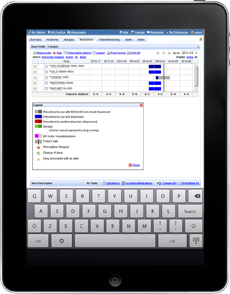Increasing the Detection and Response to Adherence Problems with Cardiovascular Medication in Primary Care through Computerized Drug Management Systems: A Randomized Control Trial.
Heart disease is the number one cause of death. The severity of heart disease has decreased a lot mostly due to medication. The benefit of those treatments is limited because a big portion of people do not take the medication as they are supposed to. These patients have twice the chance to end up in a hospital. Unwanted reactions and not having enough money may be why the patients do not to take the medications. If the doctor does not know this, they may give the patient a new medication for the wrong reasons. For example a patient is not getting better. The doctor decides to add another medication. Now the patient is taking two medications and is still unwell. The real problem is that the patient was not taking the first medication from the beginning and did not tell the doctor.
There may be a tool that could help doctors to deal with this problem. Doctors were divided in to two groups. In the first group doctors could have the computer give them complete information about the medication the patient was taking. A computer would send a warning to the doctor when the patient was not taking the medication for their heart disease. In the second group the doctor would have only basic information and what the patient told them. No warnings would be sent.
It was found that having all the information and receiving the alerts may have an advantage. Those doctors may more often detect if their patients do not take their medication. But how to deal with that may not be that easy. Things that only the patient knows may be influencing their decisions.


